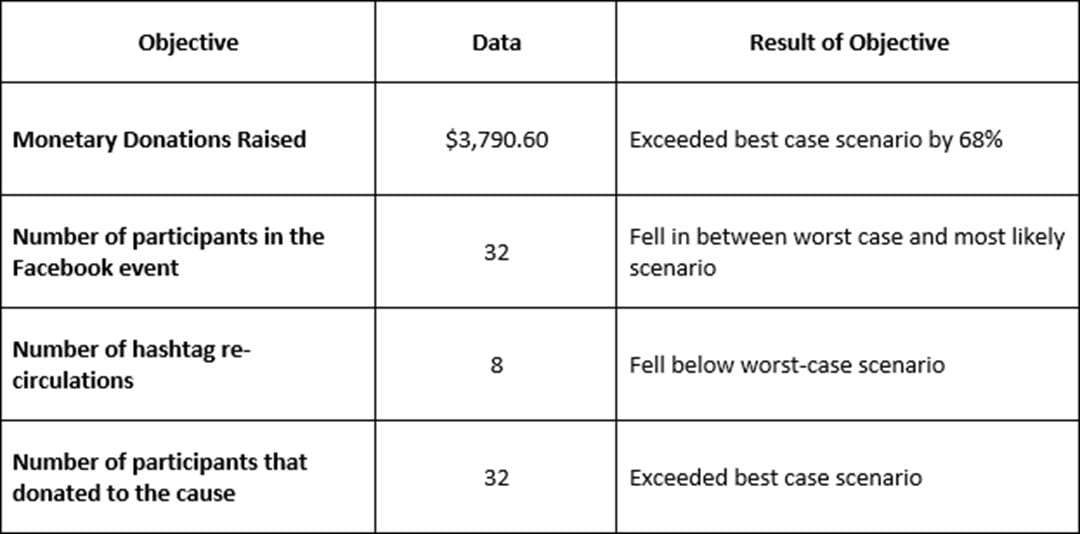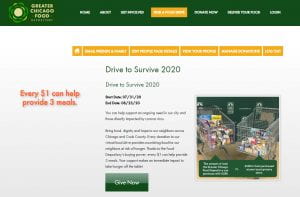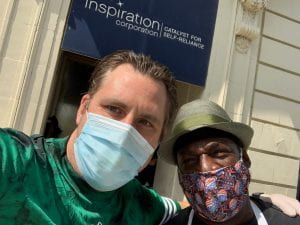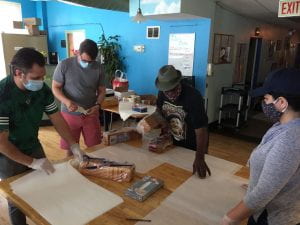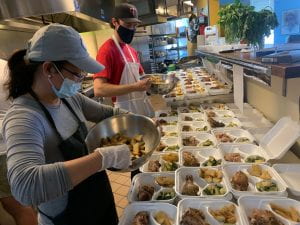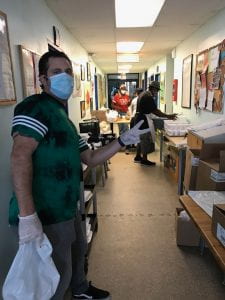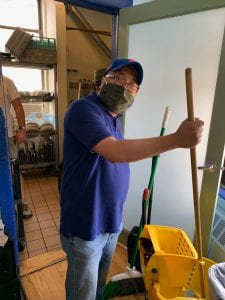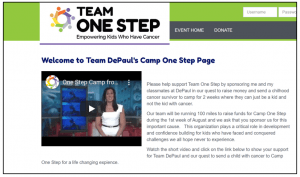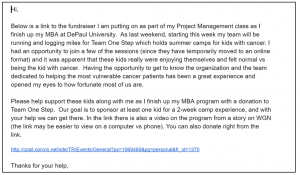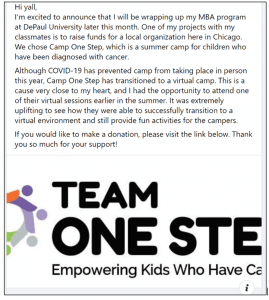Project Description
MBA’s for the Dogs Virtual 5K challenge was an event intended to raise funds and awareness for One Tail at a Time Dog Rescue. 2020 has posed many challenges when it comes to hosting social events due to social gathering restrictions to mitigate the spread of Covid-19. Therefore, event adaptations needed to be made away from the traditional in-person fundraising events.
Our virtual 5K allowed participants the opportunity to run for our cause on their own time and in their own safe space. The event occurred between August 7 through August 16 allowing participants to complete their 5K on their own time within that span. Whether participants chose to run in the rain or shine, in the morning, lunch or evening, on a treadmill, at a track, through the streets, or through trails, transitioning to a virtual platform helped make participation even more accessible than an in-person event.
We promoted the fundraising event through social media posts including; Facebook, Instagram, Twitter, LinkedIn and Snapchat. In addition to social media campaigns, we also used our individual networks to send pre-templated e-blasts to recruit additional participants. Since the event lasted for around 10 days, we requested (through social media/email) participants send pictures or posts to our social media (Facebook) event page. This interaction helped add an aspect of fun and continued to enhance our promotion of the event throughout its duration.
Charity Description
Charity Name: One Tail at a Time
Charity Website: https://www.onetail.org/
One Tail at a Time is a Chicago based no-kill 501 (c)3 rescue that helps hundreds of families find their new best friend through adoption each year. Their mission is to end pet homelessness by making pet ownership a joyful and accessible experience for all. They accomplish this by rescuing animals from overcrowded shelters, placing them in loving forever homes and providing support and resources to pet owners in need.
One Tail at a Time has been serving the Chicagoland area since 2007. Their growth was, and continues to be, due to the overwhelming support received from the community. In 2019 they helped over 900 dogs find loving, permanent homes.
Analysis of Success Measures
Our group had 4 objectives we sought to meet when planning the event. The four objectives were:
Background regarding estimations for monetary donations raised:
In terms of monetary donations raised, we had estimated a best case scenario of $1,220, a worst case scenario of $140, and a most likely scenario of $660 in donations. The best case estimates were made under the assumption that each team of the 7 team members would recruit 10 people to join the Facebook event, with 80% of those 77 total people (61 people) donating $20 each. In the worst case scenario, each team member was estimated to only recruit 5 people to join the Facebook event (42 total) with 16% of the 42 attendees (7 people) making an average of $20 donations. In the most likely scenario, we estimated $660 in donations from 60% of 56 attendees (33 people) making an average of $20 donations.
Below are the results of our event as it relates to our objectives:
Lessons Learned
Some of the lessons learned were:
• Ensure communication is constant and clear
• Confirm all links and sites for a virtual event are easily accessible for all participants
• Plan out team meetings far in advance to meet deliverable deadlines
• Ensure goals are realistic and can be tracked easily
Advice for Future Teams
• Have fun!
• Pick a charity the group is passionate about
• Time flies so don’t fall behind
• Set a communication schedule early on


